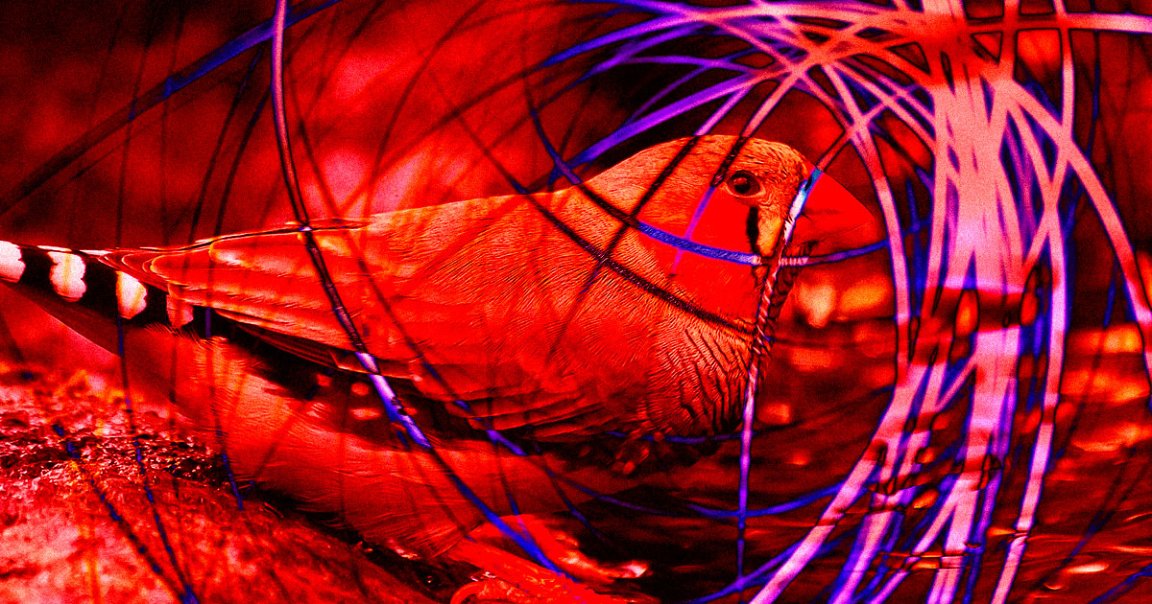
Bird Brained
Most zebra finches learn to sing by mimicking the songs of their parents.
But now, a team of University of Texas Southwestern researchers has managed to implant memories of songs the birds had never heard before right into the animals’ brains — and they did so using patterns of light.
Familiar Tune
In a paper published in the journal Science on Thursday, the researchers detail how they inserted genes into specific neurons related to song-learning in the birds’ brains. Those genes allowed the researchers to “activate” the neurons using light.
The longer they shone a light on a certain neuron pathway, the longer the syllables of a bird’s song. By alternating short and long durations of light exposure, the team taught the bird its “song memories.”
“This is the first time we have confirmed brain regions that encode behavioral-goal memories — those memories that guide us when we want to imitate anything from speech to learning the piano,” researcher Todd Roberts said in a press release.
False Memories
While impressive, this research doesn’t mean we can now implant memories in humans — that’s still science fiction. But the study could shine a light, so to say, on new ways to identify parts of the human brain that influence the way we speak and make sounds.
“The human brain and the pathways associated with speech and language are immensely more complicated than the songbird’s circuitry,” Roberts said. “But our research is providing strong clues of where to look for more insight on neurodevelopmental disorders.”
READ MORE: Implanting false memories in a bird’s brain changes its tune [New Scientist]
More on memories: Zapping Elderly People’s Brains Supercharges Their Working Memory